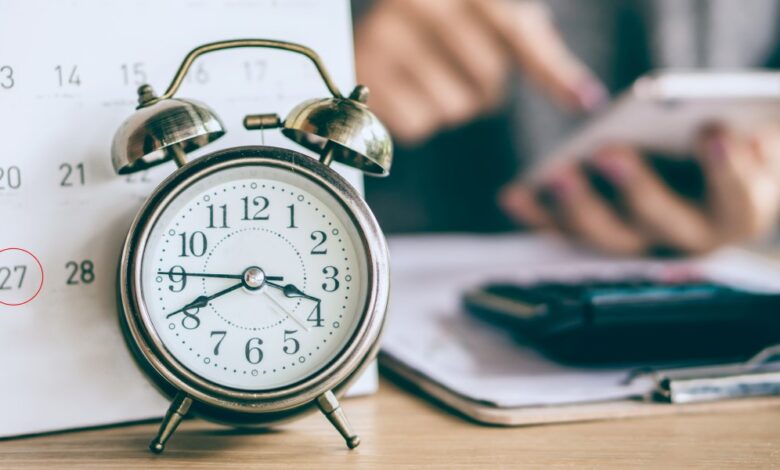Time Management Innovation: One Of The Best Techniques for Academic Triumph

In the trip of education and learning, understanding efficient research study routines is similar to wielding an effective tool that unlocks the doors to academic success. Time Management Innovation One Of The Best Techniques for Academic Triumph. Whether you’re a trainee in secondary school, college, or going after college, the means you examine greatly effects your Learning outcomes. In this extensive overview, we dive right into the world of efficient study routines, discovering strategies and techniques to maximize your Learning experience and attain your academic objectives.
Comprehending Efficient Research Regimens
Effective research regimens include a range of methods intended at improving understanding, retention, and application of knowledge. They entail purposeful efforts to arrange time, sources, and approaches to maximize finding out efficiency. Instead of turning to last-minute stuffing or passive analysis, efficient research routines highlight energetic involvement, critical thinking, and regular initiative over time.Make the most out of your time in college by incorporating these time management strategies. Read more about it on utexas to discover effective ways to manage your academic commitments
Secret Components of Efficient Research Study Routines
Setting Clear Goals: Start by specifying your academic objectives. Whether it’s acing an examination, grasping a subject, or finishing a project, developing clear and possible goals provides direction and inspiration for your study initiatives.
Time Management
Reliable allowance of time is vital for effective examining. Develop a research study timetable that balances academic pursuits with various other commitments. Break down your research sessions right into workable portions, integrating time-outs to preserve emphasis and prevent burnout.
Developing a Productive Study Atmosphere
Your research study atmosphere considerably influences concentration and efficiency. Select a quiet, well-lit area totally free from disturbances. Organize research study products, such as textbooks, notes, and stationery, to reduce mess and help with easy accessibility.
Energetic Learning Approaches
Easy reading alone wants for deep understanding and retention. Employ energetic Learning techniques such as summing up, rewording, and mentor concepts to others. Use multimedia resources, interactive exercises, and seminar to strengthen Learning and improve comprehension.
Utilizing Effective Resources
Recognize premium resources lined up with your Learning goals. This might include books, on-line tutorials, academic journals, or educational apps. Trying out different tools and materials to find what reverberates best with your Learning design.
Taking Routine Breaks
Avoid the temptation to examine for extended durations without breaks. Fatigue decreases focus and hinders cognitive function. Arrange time-outs during research study sessions to charge your mind and maintain optimum efficiency.
Practicing Self-Assessment
Evaluate your understanding regularly via self-testing, quizzes, or practice tests. Recognize areas of weakness and prioritize them in your research plan. Routine self-assessment cultivates metacognitive awareness and makes it possible for targeted enhancement.
Seeking Clarification and Assistance
Don’t wait to seek information from trainers, peers, or academic support services when encountering difficulties. Participate in active discussion, ask concerns, and take part in study teams to strengthen understanding and address misunderstandings.
Taste Study Routine
To show the application of effective research routines, allow’s outline a sample study routine customized to a college student planning for last examinations:
Early morning (8:00 AM – 12:00 PM).
8:00 AM – 9:30 AM
Review lecture notes and textbook readings for the upcoming test in Biology.
9:30 AM – 9:45 AM
Take a 15-minute break to stretch, moisturize, and rest.
9:45 AM – 11:00 AM
Work on practice problems and principle exercises connected to cellular biology.
11:00 AM – 12:00 PM
Participate in a virtual study group session to talk about challenging topics and clear up doubts with peers.
Afternoon (1:00 PM – 5:00 PM).
1:00 PM – 2:30 PM
Focus on examining Chemistry ideas, including stoichiometry and chain reaction.
2:30 PM – 2:45 PM
Take a short break to revitalize and charge.
2:45 PM – 4:30 PM
Complete designated readings and prepare an overview for an approaching Background essay.
4:30 PM – 5:00 PM
Review the day’s research study progression, settle bottom lines, and plan for tomorrow’s research study sessions.
Evening (7:00 PM – 10:00 PM).
7:00 PM – 8:30 PM
Revise mathematical formulas and fix calculus problems.
8:30 PM – 8:45 PM
Take a short break to relax and kick back.
8:45 PM – 10:00 PM
Review Spanish vocabulary and method conversational workouts making use of language finding out apps.
Conclusion
Understanding effective research study routines is not simply concerning placing in hours of initiative but enhancing the quality of your Learning experience. By integrating methods such as setting goal, time monitoring, active Learning, and self-assessment right into your study program, you can boost understanding, retention, and academic efficiency. Keep in mind, uniformity and determination are essential merits on the course to academic success. Embrace the trip of learning with inquisitiveness, resolution, and a dedication to continual enhancement. With the best research study regimens, you can open your full possibility and flourish in your educational endea.




